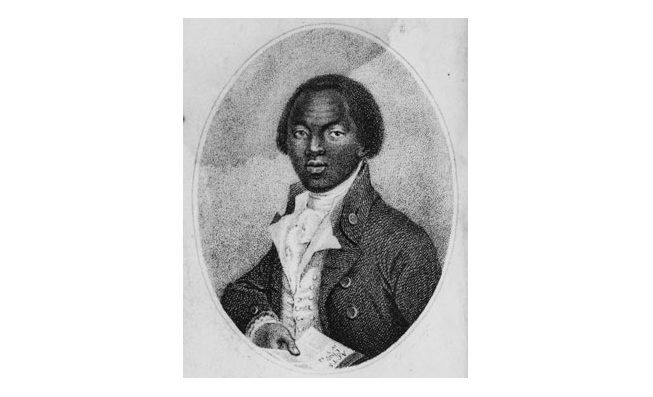The interesting narrative of the life of Olaudah Equiano or Gustavus Vassa, the African
Theme: The arts in the Age of Revolution, Revolutionary ideas, Haitian revolution (1791 - 1804), Social and cultural revolution, Challenging slavery: abolition and opposition, Printing revolution, People in motion: exiles and opportunities, Trade, tariffs and taxes
Olaudah Equiano was an African-born writer who documented his experiences of capture and enslavement, worked and travelled all over the British Atlantic world, and later became involved in the movement to abolish slavery. He was among the first and most effective black political activists within Britain’s African community. The recollections and arguments of people of African origin made a profound contribution to arguments for the abolition of the slave trade, adding urgency and authenticity to the work of fellow white campaigners.
Transatlantic slavery was a brutal system which lasted 300 years. It allowed African men, women and children to be stolen from their homeland, bought and sold as property, and used to produce sugar, coffee, cotton and other goods for huge profit in the European and North American markets. Its legacies are still felt across the world today.
Olaudah Equiano (c.1745 – 1797) was born in what is now known as Southern Nigeria. At the age of 11 he was kidnapped along with his sister, marched in chains to the coast and shipped across the Atlantic along with hundreds of other fellow Africans in inhumane conditions in the hold of the ship. On eventually arriving in what is now Barbados he was sold to a plantation owner and forced to work as a slave. Later, he was sold to a naval officer who, against Olaudah’s will, renamed him Gustavas Vassa. During this time, he learned to read and write and, eventually, earned enough money to buy his freedom.
He toured Britain, revealing the harsh realities of transatlantic slavery that many British people did not know about.
Olaudah Equiano eventually settled in London where he became involved in the movement to abolish slavery. In 1789 he published his autobiography, The Interesting Narrative of the Life of Olaudah Equiano or Gustavus Vassa, the African, which told of his early life in Africa and his experiences of slavery. It was one of the earliest books to be published by a black writer. He toured Britain with his book, recounting his testimony and revealing the harsh realities of transatlantic slavery that many British people did not know about. The book became immensely popular and was an important tool in the abolition campaign, along with the testimonies of other Africans who had escaped slavery such as Ignatius Sancho and Mary Prince.
These extracts from Equiano’s autobiography describe his early life in Africa and how, at the age of 11, he is about to make the long passage across the Atlantic from the west coast of Africa to Barbados. It describes the horrors of the voyage, packed into the hold of a slave ship as ‘cargo’, along with hundreds of other enslaved African men, women and children.
Listen to Equiano’s account of Early life in Africa
Listen to Equiano’s account of Arrival in the Americas
Use our Classroom resources to investigate this object and the theme of Abolition further.
Highlights:
Sources & acknowledgements
This object description and its related educational resources were researched and written by our team of historians and education specialists. For further information see the item’s home museum, gallery or archive, listed above.
- Enquiry Questions
-
Education overview
You can find out more about Equiano and other black people in Europe on the International Slavery Museum website.
You can access a range of teachers resources related to this object and more on our education page.
Please also see our glossary of terms for more detailed explanations of the terms used.
-
Curatorial info
- Originating Museum: International Slavery Museum
- Production Date: 1789
- Creator: Olaudah Equiano
- Original record
-
Use this image
You can download the image and audio for personal and educational use but please take note of the license type and rights holder information.
- Rights Holder: International Slavery Museum
- License Type:
Find it here
This object is in the collection of International Slavery Museum



